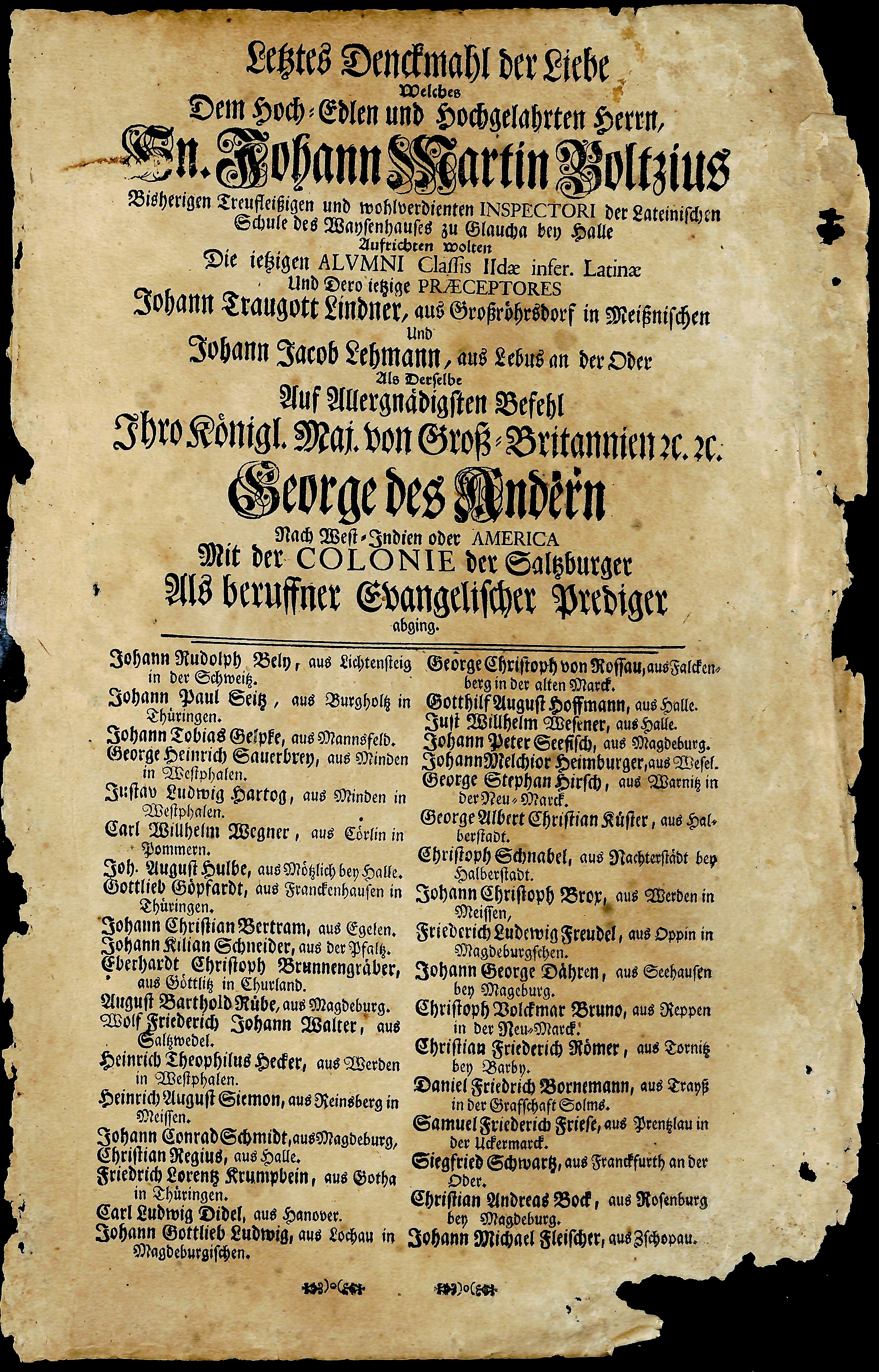By Scott Reeves, Archivist, Crumley Archives
The Salzburger collection, an accession of 160 books which once belonged to the German speaking immigrant community who came to of Ebenezer, Georgia in 1733, consistently rewards us with new surprises as we continue our cataloging and research work on it. One particularly interesting piece in the collection was a certificate that had been placed in protective plastic sheeting. We knew by the top-center placement in large bold fractur of the name of the community’s first pastor, Johann Martin Boltzius, along with the central placement of King George II of England, that this was a document of some significance.
Dr. Russell Kleckley, the translator of The Letters of Johann Martin Boltzius and keynote speaker for the Archives’ Reformation Reception, has been kind enough to advise us in our research efforts. He recently translated the document; it proved to be a farewell greeting from the faculty and students of the school connected to the Francke Foundation in the pietist center of Halle from whence Boltzius had accepted the call to lead the displaced emigrants from Salzburg. According to the conservationist who recently evaluated key volumes from the collection, the farewell document had initially been “tipped in” (specially bound in front of the title page) to the front of the book The Soul’s Treasures by Christian Scriver, which was evidently given as a departing gift to Boltzius.
More intriguing still, Dr. Kleckley wrote to an archivist colleague in Halle, Jürgen Gröschl, and included an image of the document. Mr. Gröschl expressed genuine interest in the collection, noting that he had already heard of our cataloguing efforts. Furthermore, he offered help in identifying rare titles. Of the Boltzius farewell document he stated:
The farewell greetings for Boltzius are really a surprising discovery, and we have not known of their existence so far, i.e. we do not possess another copy of this document. As it was printed, one could assume that the students of Boltzius’ class received a copy, but there is no copy in our archives. Many of these students are in our database as they became teachers or inspectors in the schools of the orphanage themselves and/or pastors in their own communities later.
I think the book by Scriver was a normally printed copy. Usually such books were sold unbound. In this case, the students added their print sheet with the greetings and had them bound together with the book by a professional bookbinder.
Mr. Gröschl has not been the only scholar to express interest in the collection; the work on the Salzburger collection has created some excitement in a broader scholarly circle, and we have been blessed with assistance not only from Dr. Kleckley but also of Dr. Scott Hendrix, professor emeritus of Reformation history and Princeton as well as Dr. Patrick Scott, former director of rare books at USC. In fact, Dr. Scott has invested a great deal of time and effort in assisting with the publication of a printed version of the collection’s bibliographic catalogue, The Salzburger Collection, which is now available for purchase with proceeds benefitting the work of the Archives. Sandy Leach of Lineberger Library and Shannon Smith our head archivist presented at a gathering of the SC Library Association (SCLA) about the process of transferring the collection from the library to the archives back in November, and an accompanying article is set for publication in the next edition of the SCLA journal. We have hopes that as our work continues the Boltzius farewell greeting will not be the last “surprising discovery.”

